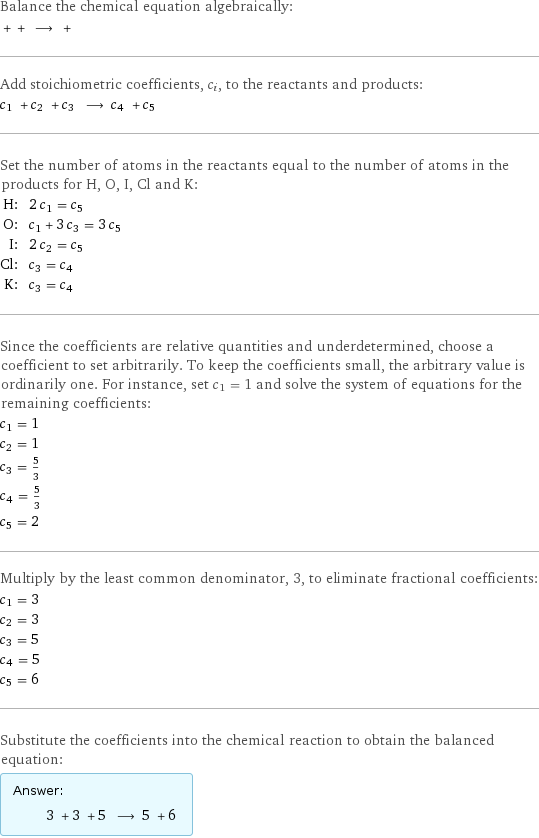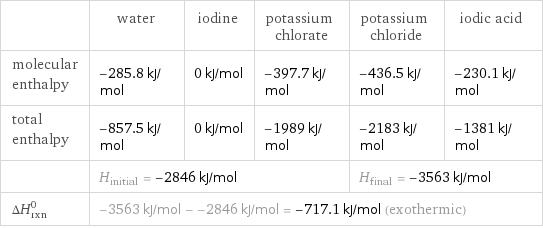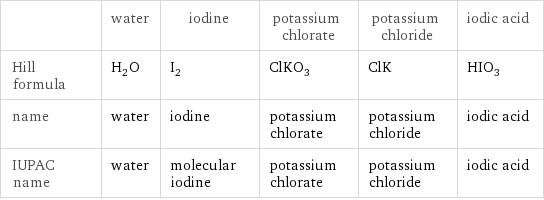Input interpretation

water + iodine + potassium chlorate ⟶ potassium chloride + iodic acid
Balanced equation

Balance the chemical equation algebraically: + + ⟶ + Add stoichiometric coefficients, c_i, to the reactants and products: c_1 + c_2 + c_3 ⟶ c_4 + c_5 Set the number of atoms in the reactants equal to the number of atoms in the products for H, O, I, Cl and K: H: | 2 c_1 = c_5 O: | c_1 + 3 c_3 = 3 c_5 I: | 2 c_2 = c_5 Cl: | c_3 = c_4 K: | c_3 = c_4 Since the coefficients are relative quantities and underdetermined, choose a coefficient to set arbitrarily. To keep the coefficients small, the arbitrary value is ordinarily one. For instance, set c_1 = 1 and solve the system of equations for the remaining coefficients: c_1 = 1 c_2 = 1 c_3 = 5/3 c_4 = 5/3 c_5 = 2 Multiply by the least common denominator, 3, to eliminate fractional coefficients: c_1 = 3 c_2 = 3 c_3 = 5 c_4 = 5 c_5 = 6 Substitute the coefficients into the chemical reaction to obtain the balanced equation: Answer: | | 3 + 3 + 5 ⟶ 5 + 6
Structures

+ + ⟶ +
Names

water + iodine + potassium chlorate ⟶ potassium chloride + iodic acid
Reaction thermodynamics
Enthalpy

| water | iodine | potassium chlorate | potassium chloride | iodic acid molecular enthalpy | -285.8 kJ/mol | 0 kJ/mol | -397.7 kJ/mol | -436.5 kJ/mol | -230.1 kJ/mol total enthalpy | -857.5 kJ/mol | 0 kJ/mol | -1989 kJ/mol | -2183 kJ/mol | -1381 kJ/mol | H_initial = -2846 kJ/mol | | | H_final = -3563 kJ/mol | ΔH_rxn^0 | -3563 kJ/mol - -2846 kJ/mol = -717.1 kJ/mol (exothermic) | | | |
Chemical names and formulas

| water | iodine | potassium chlorate | potassium chloride | iodic acid Hill formula | H_2O | I_2 | ClKO_3 | ClK | HIO_3 name | water | iodine | potassium chlorate | potassium chloride | iodic acid IUPAC name | water | molecular iodine | potassium chlorate | potassium chloride | iodic acid